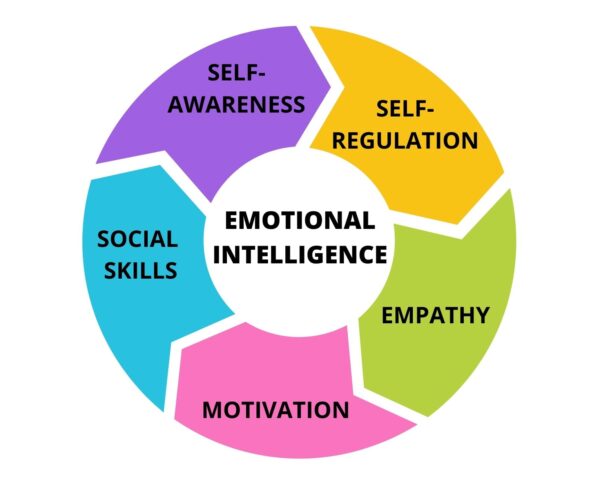In the fast-paced world of education, a vital skill often takes center stage: emotional intelligence. Beyond textbooks and tests, cultivating emotional intelligence equips students with a compass for navigating life’s complexities.
The EQ Edge:
Emotional intelligence (EQ) is the ability to understand, manage, and harness emotions – a skill that influences success in academics and life.
Beyond IQ:
While IQ measures cognitive abilities, EQ addresses the emotional landscape. High EQ predicts better relationships, mental health, and career success.
The Classroom’s EQ Impact:
Educators play a pivotal role in molding emotional intelligence. Classrooms can be laboratories for EQ growth and development.
Empathy Empowerment:
Empathy, a cornerstone of EQ, teaches students to understand others’ feelings. Storytelling and role-playing can nurture empathy from an early age.
Labeling Emotions:
Helping students name their emotions cultivates emotional awareness. Journals and discussions offer safe spaces to explore feelings.
Mindfulness Moments:
Mindfulness practices teach students to be present and manage stress. Breathing exercises and short mindfulness sessions can calm turbulent emotions.
Conflict Resolution:
Navigating conflicts with emotional maturity is a lifelong skill. Teaching students to communicate feelings constructively fosters conflict resolution.
Social Skills Workouts:
Group activities, team projects, and cooperative games build social skills, enhancing students’ ability to collaborate and empathize.
Self-Regulation Strategies:
Teach students techniques to manage frustration, anger, and anxiety. Deep breathing, visualization, and positive self-talk can be powerful tools.
Real-Life Scenarios:
Incorporate real-world situations into lessons. Discuss how characters in literature or historical figures dealt with emotions, fostering empathy and critical thinking.
Teacher-Student Connections:
Strong teacher-student relationships create a nurturing environment. A supportive teacher models emotional intelligence, inspiring students.
Parental Partnership:
Involve parents in EQ development. Workshops and resources can extend emotional intelligence practices beyond the classroom.
Celebrating Mistakes:
Foster a growth mindset by reframing mistakes as learning opportunities. Encourage students to acknowledge and learn from failures.
Assessment Beyond Grades:
Assessing emotional intelligence matters. Rubrics for teamwork, communication, and empathy offer a comprehensive view of student growth.
A Future with EQ:
Beyond exams and degrees, EQ forms a foundation for success. Empathetic leaders, effective communicators – students equipped with emotional intelligence stride confidently into the future.
Emotional intelligence is a gift that keeps giving. By nurturing it in students, educators sow seeds for a brighter, more emotionally aware society.




